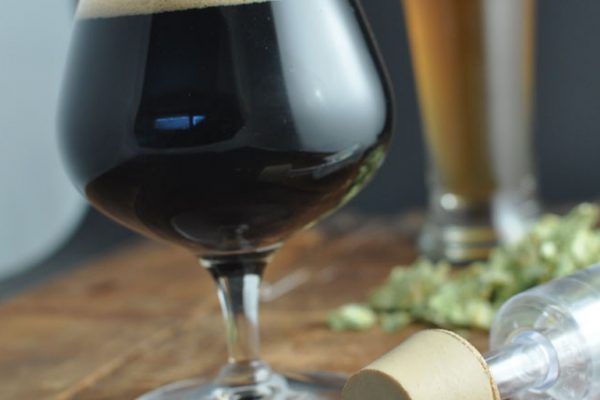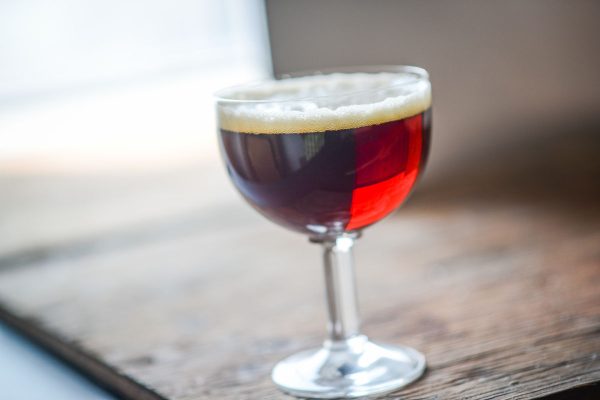
The following beer recipe is featured in the July/August 2011 issue of Zymurgy magazine. Access this issue along with the archives with Zymurgy Online!
The following recipe appears in "The Winners Circle: 18th Annual Peach State Brew Off" by Amahl Turczyn in the July/August 2011 issue of Zymurgy magazine.
This Baltic Porter is complex but well worth the wait, per its creator Ryan Stansbury with the Brewmasters of Alpharetta homebrew club. With this recipe and a meticulous process, he won best of show at the 2011 Peach State Brew Off in Atlanta, GA.
Brewers Notes
"There are two keys to brewing this beer. The first is the malt bill. It's fairly complex, and for that reason some patience is required. In my experience, the more complex the grain bill, the more conditioning the beer needs for the flavors to meld. I also recommend sourcing the debittered dark malts to keep the roastiness restrained. The other key is fermentation. The strain of yeast is largely unimportant and can be either lager or ale as long as esters are restrained. I used an ale yeast that ferments cleanly at lower temperatures just because it was available. The recipe is also fairly dry for the style, which is a personal preference, so just look for yeast that ferments cleanly, attenuates well, and can handle the higher ABV."
The following beer recipe is featured in the July/August 2011 issue of Zymurgy magazine. Access this issue along with the archives with Zymurgy Online!
The following recipe appears in "The Winners Circle: 18th Annual Peach State Brew Off" by Amahl Turczyn in the July/August 2011 issue of Zymurgy magazine.
This Baltic Porter is complex but well worth the wait, per its creator Ryan Stansbury with the Brewmasters of Alpharetta homebrew club. With this recipe and a meticulous process, he won best of show at the 2011 Peach State Brew Off in Atlanta, GA.
Brewers Notes
"There are two keys to brewing this beer. The first is the malt bill. It's fairly complex, and for that reason some patience is required. In my experience, the more complex the grain bill, the more conditioning the beer needs for the flavors to meld. I also recommend sourcing the debittered dark malts to keep the roastiness restrained. The other key is fermentation. The strain of yeast is largely unimportant and can be either lager or ale as long as esters are restrained. I used an ale yeast that ferments cleanly at lower temperatures just because it was available. The recipe is also fairly dry for the style, which is a personal preference, so just look for yeast that ferments cleanly, attenuates well, and can handle the higher ABV."
Ingredients:
- 13 lb. (5.9 kg) light Munich malt
- 5 lb. (2.27 kg) Belgian Pilsner malt
- 8 oz. (227 g) Caramunich malt
- 8 oz. (227 g) Special B malt
- 8 oz. (227 g) 60°L crystal malt
- 4 oz. (113 g) debittered chocolate malt
- 4 oz. (113 g) Carafa Special II
- 1.8 oz. (51 g) Styrian Golding pellet hops, 5.2% a.a. (60 min)
- 1 oz. (28 g) Tettnanger pellet hops, 3.2% a.a. (10 min)
- 1 tablet Whirlfloc (10 min)
- Low temperature fermenting ale yeast*
- *This recipe originally called for Wyeast NeoBrittania ale yeast, which is no longer available. See directions for more information on yeast selection.
Specifications:
Yield: 5.5 U.S. gallons (20.82 L)
Original Gravity: 1.089
Final Gravity: 1.015
ABV: 9.70%
IBU: 23
SRM: ~30
Boil Time: 90 min
Efficiency: 70%
Directions:
Beginning volume of 7.75 gallons (29.3 L) should boil down to about 6.25 gallons (23.7 L) and yield about 5.5 gallons (20.8 L) in the fermenter after racking off the trub. Use a single-temperature infusion mash of 148°F (64°C) for 90 minutes. Use brewing salts in the mash to target a fairly high carbonate water and pH in the 5.3 to 5.4 range. Mash out at 162°F (72°C) and sparge at 170°F (77°C). Boil for 90 minutes and chill. Ferment at 64°F (18°C) for a few weeks or until finished. Keg and cold condition at 45°F (7°C) for as long as you can bear to wait (a couple months minimum). Carbonate to 3 volumes (6 g/L).
Extract Version
Substitute 8.6 lb. (3.9 kg) liquid Munich malt extract for the Munich malt and 3.5 lb. (1.6 kg) liquid Pilsner malt extract for the Pilsner malt. Steep the grains in 158°F (70°C) water for 30 minutes, then remove grains and strain. Add the malt extract and bring to a boil. Follow the recipe as indicated.



Share Post